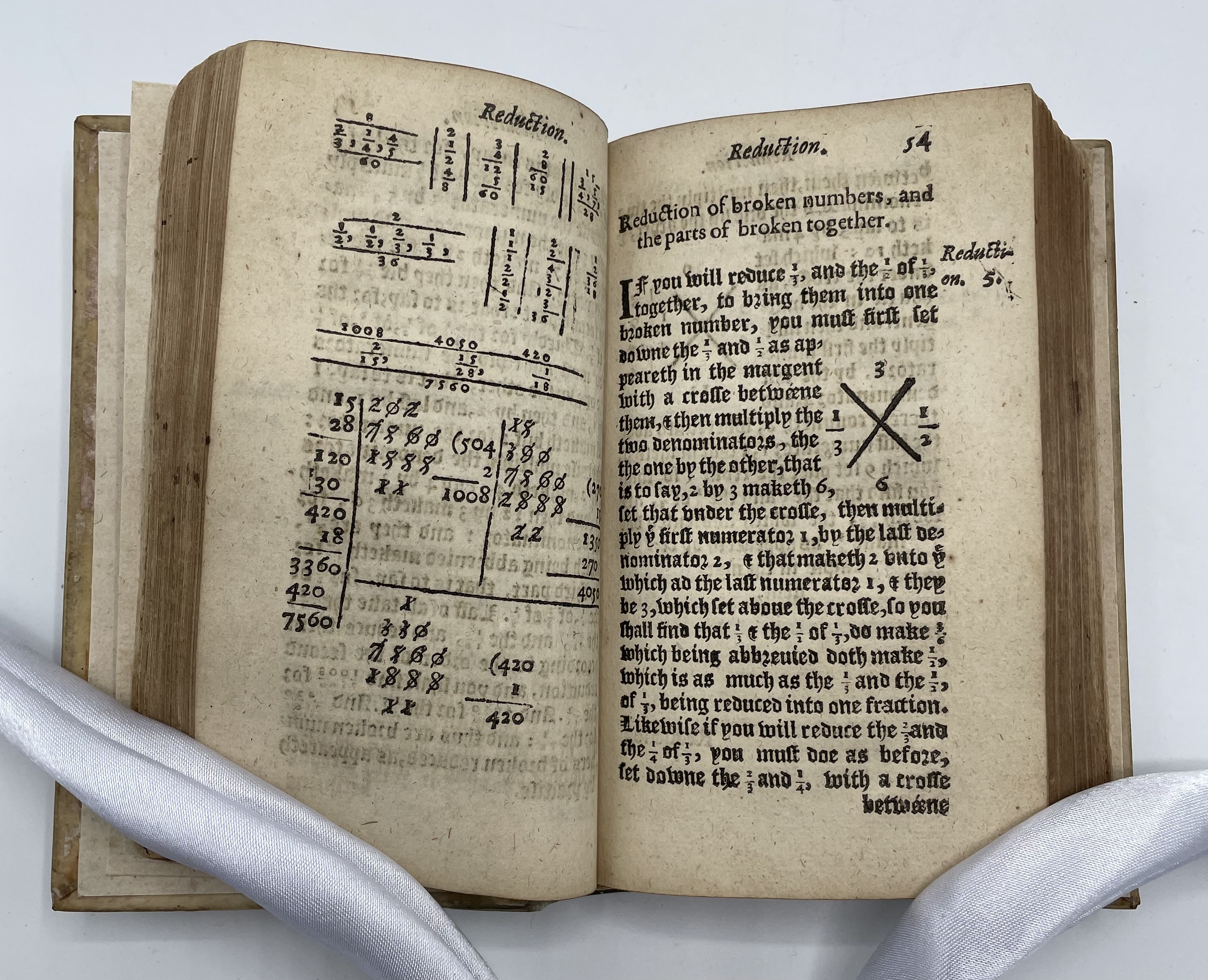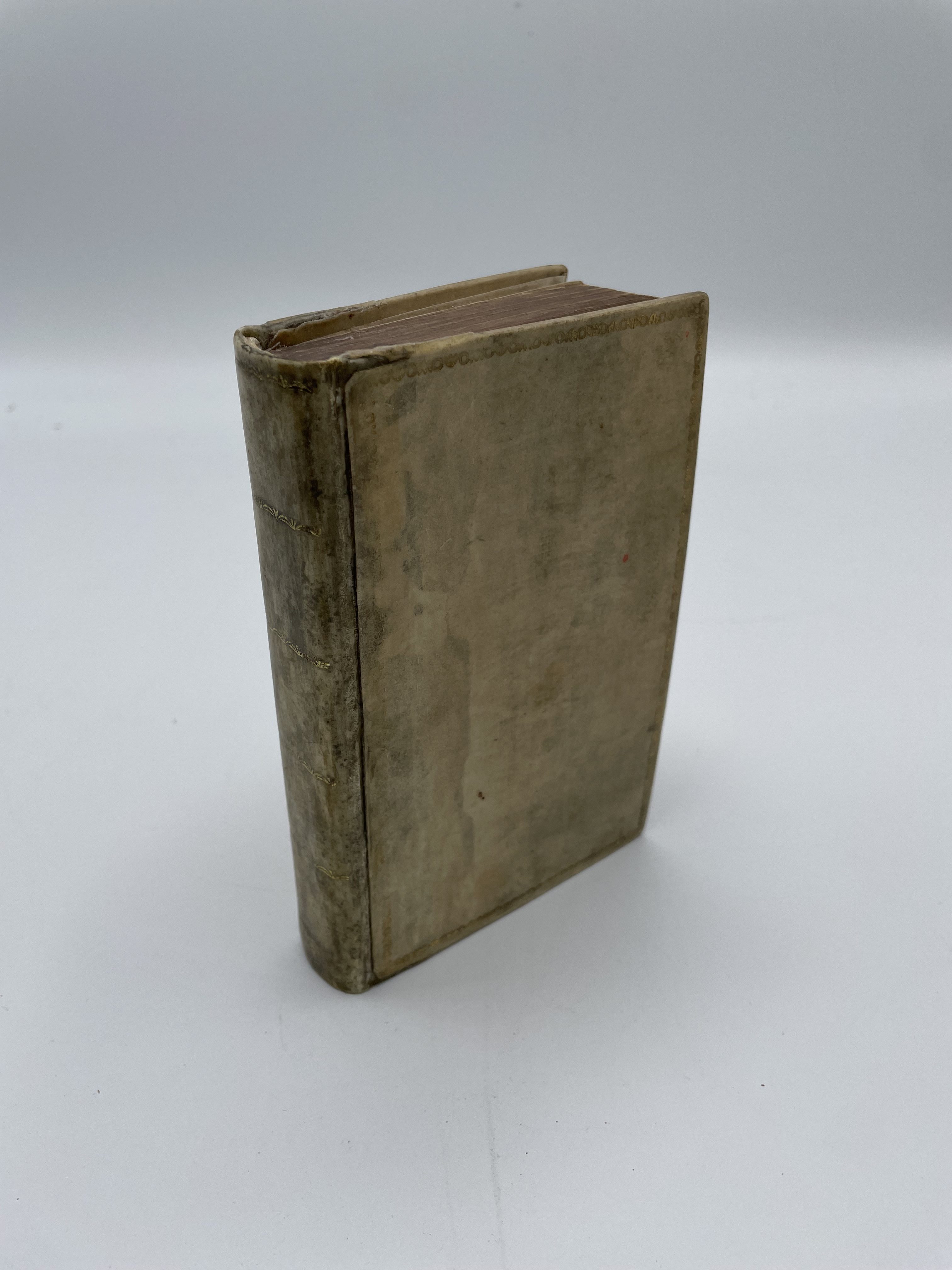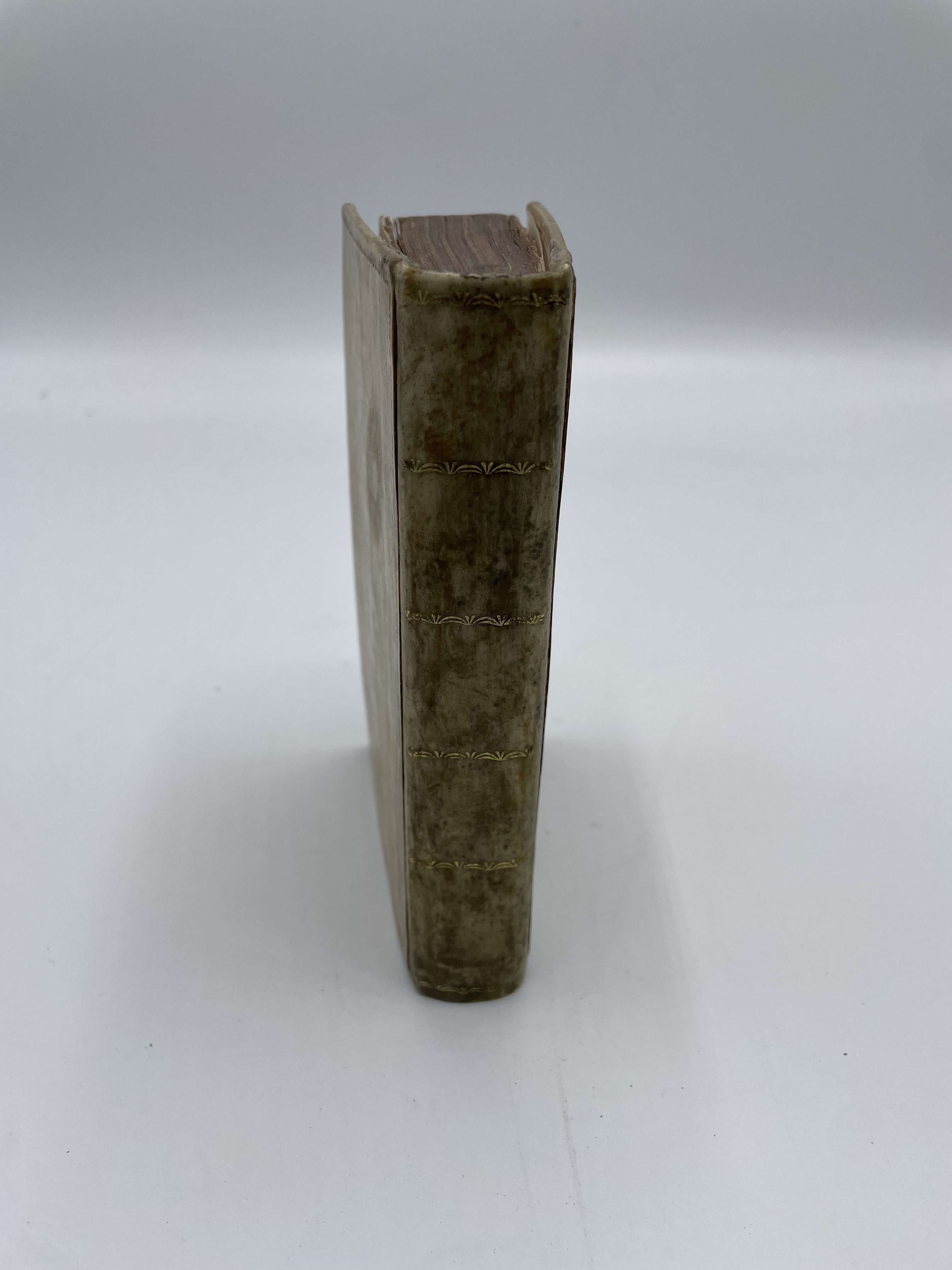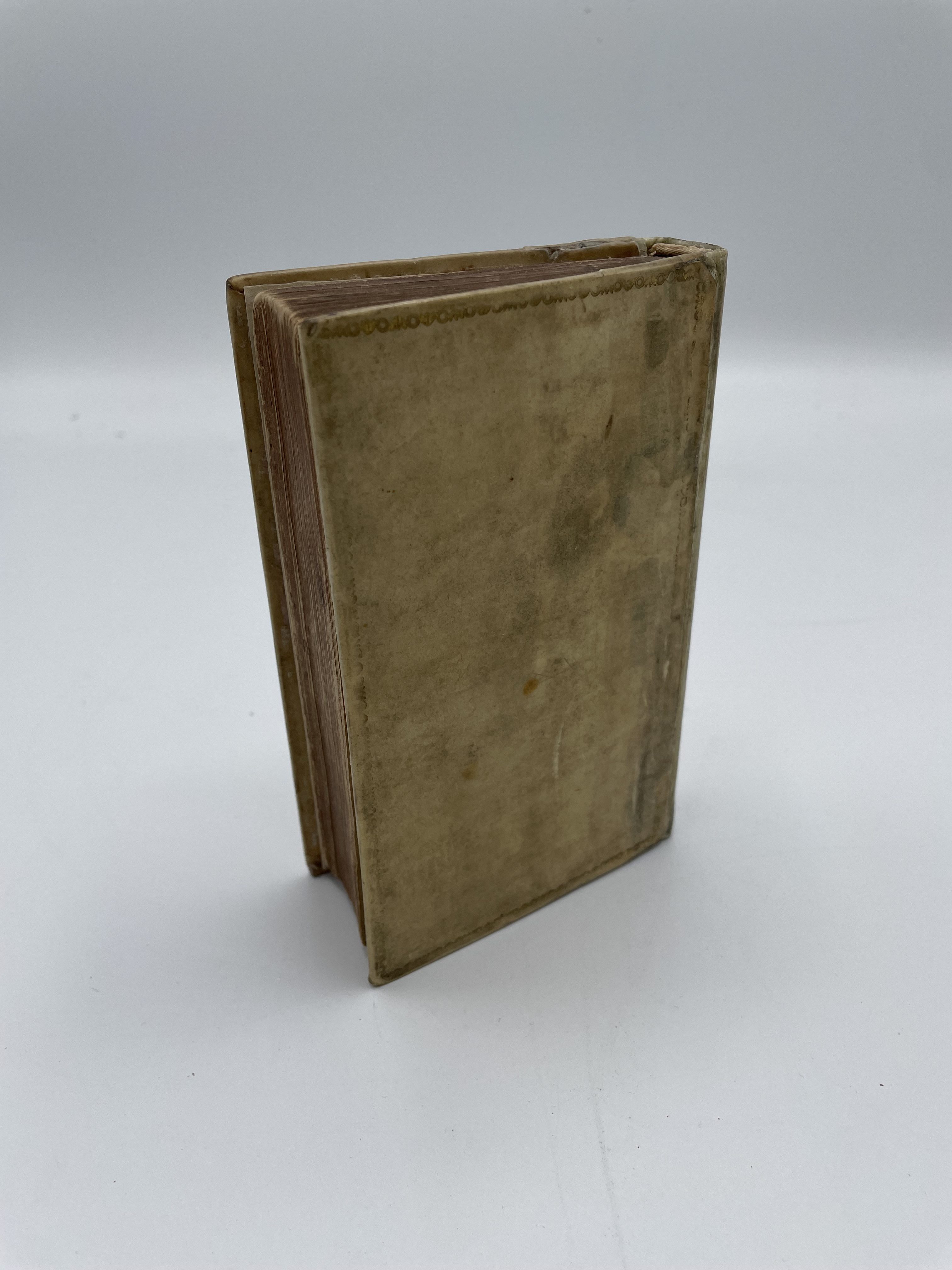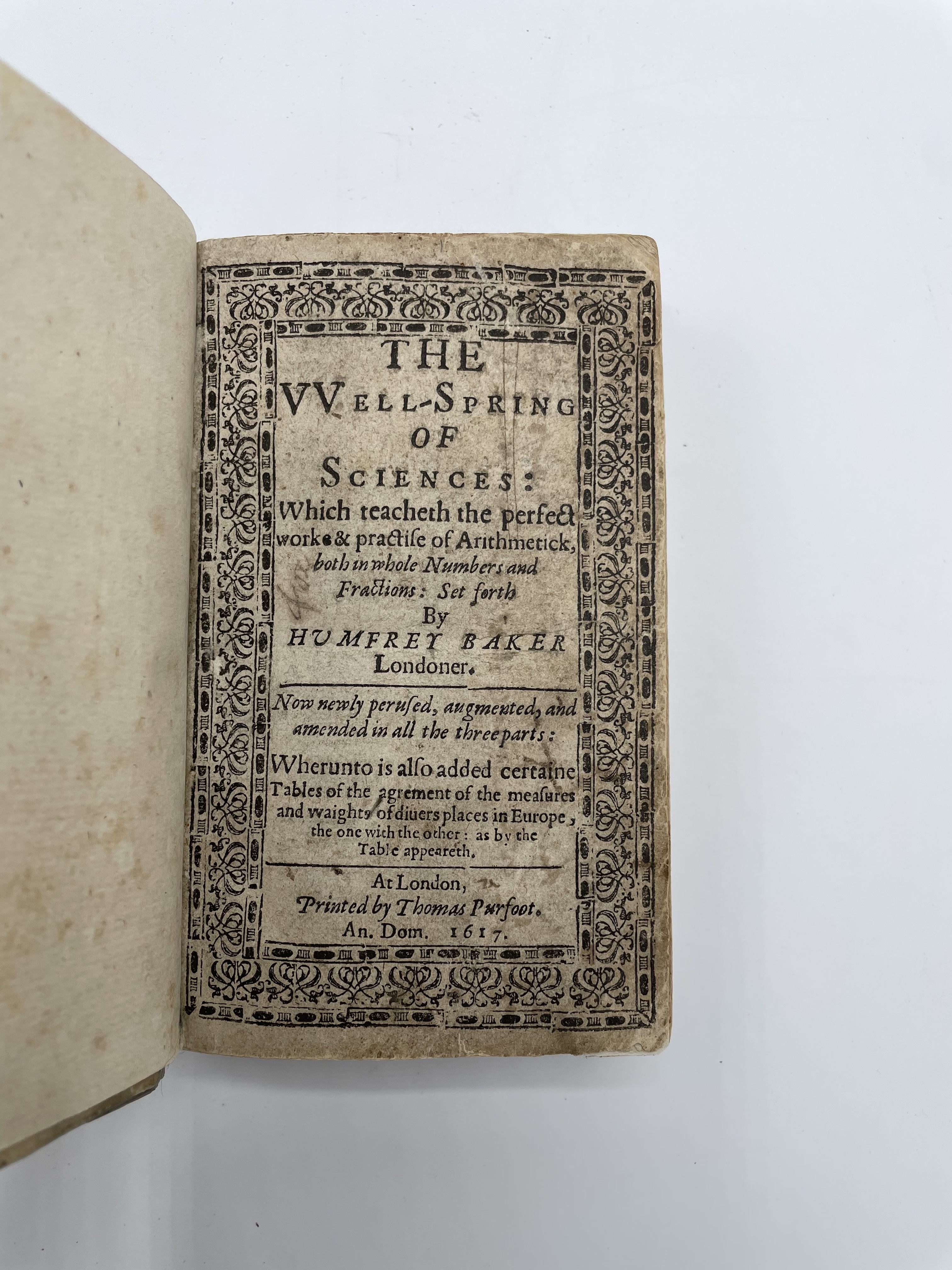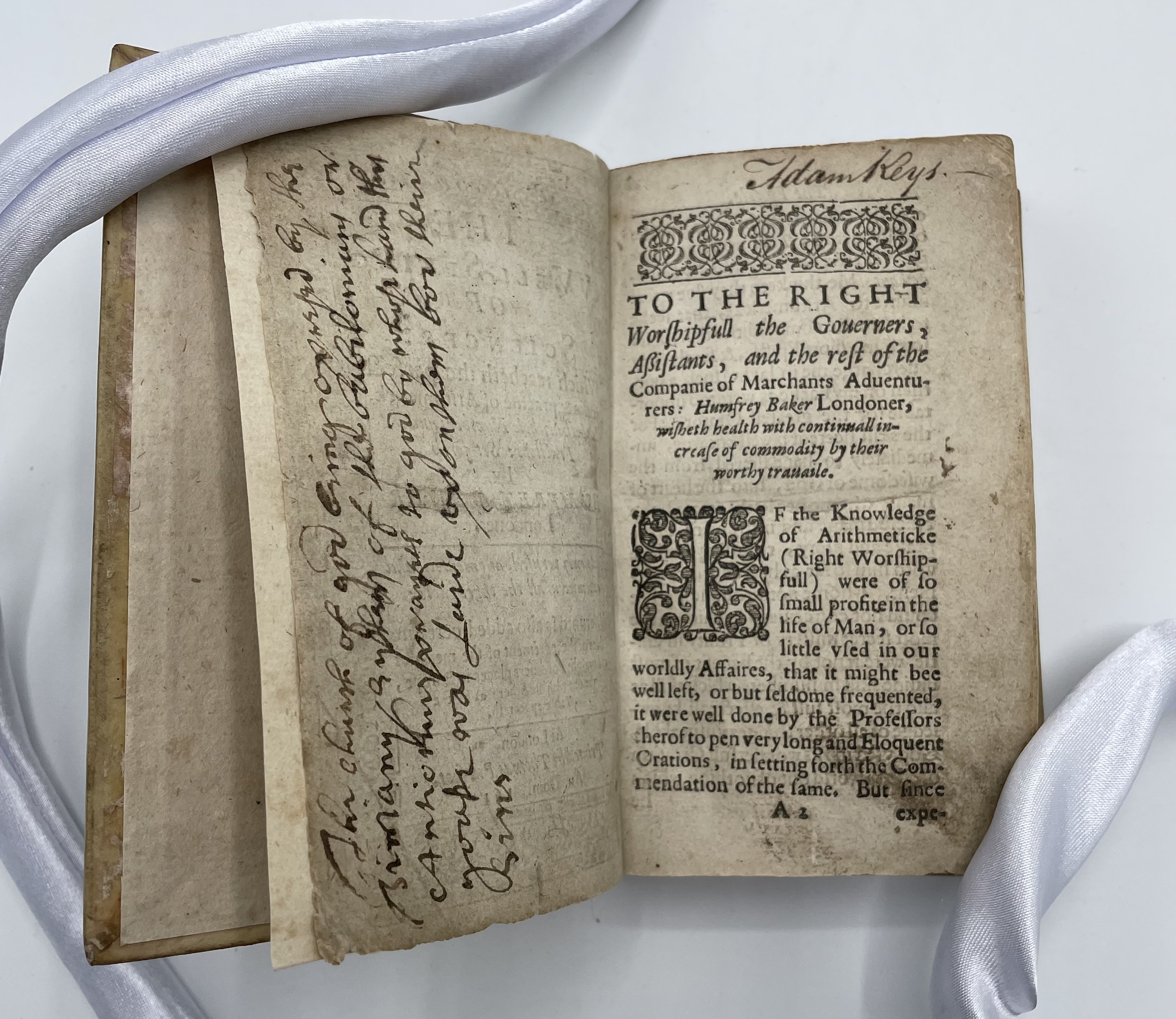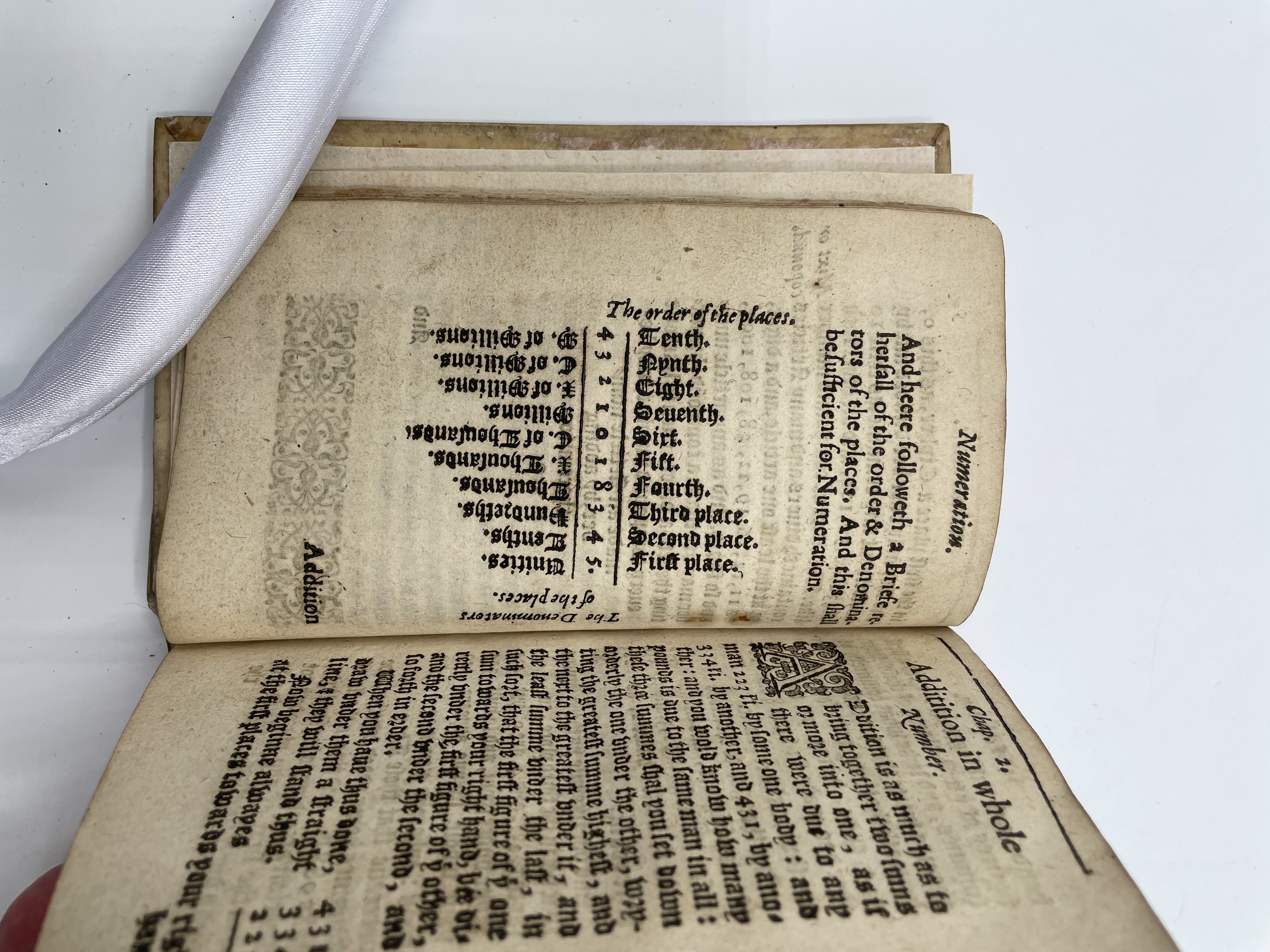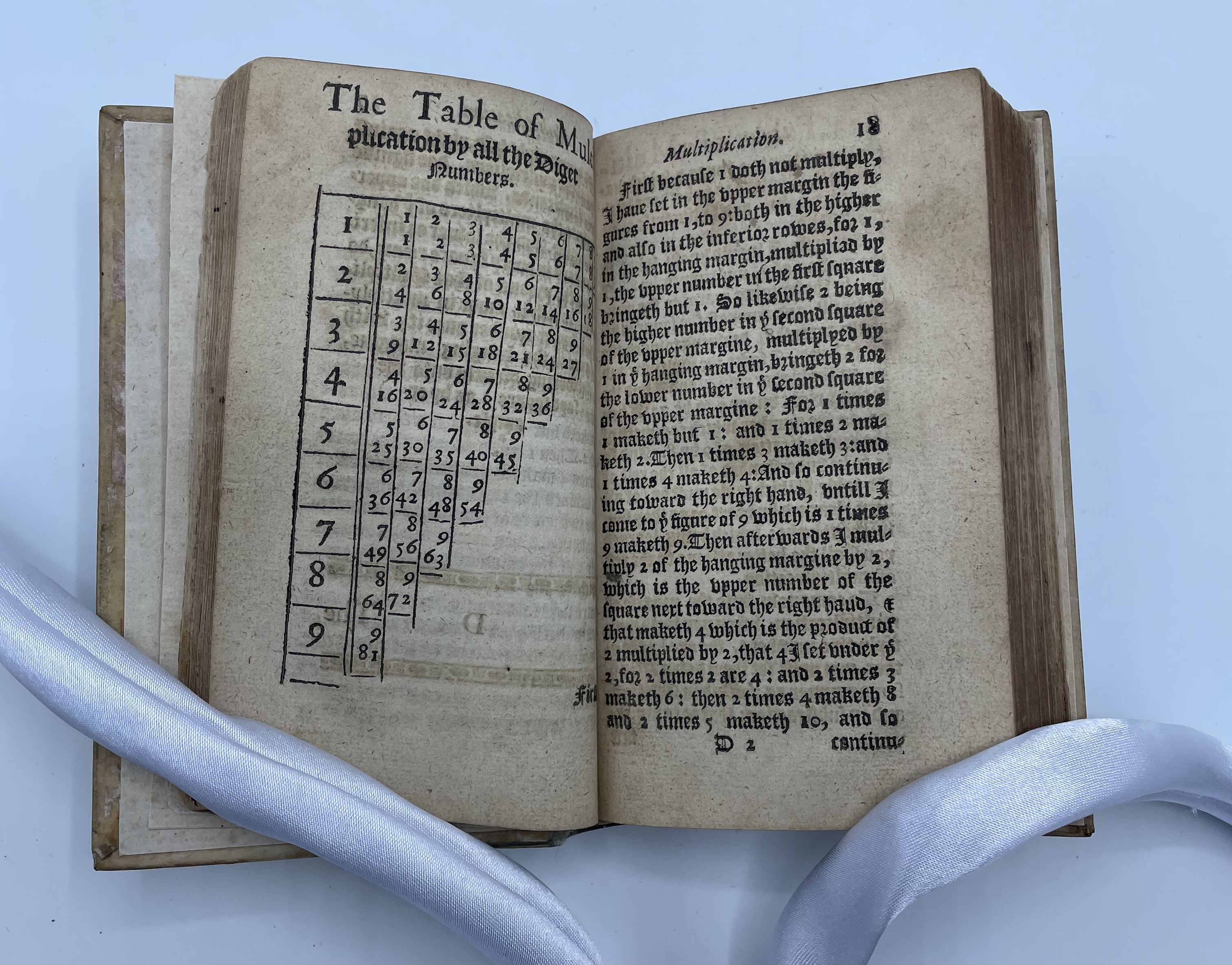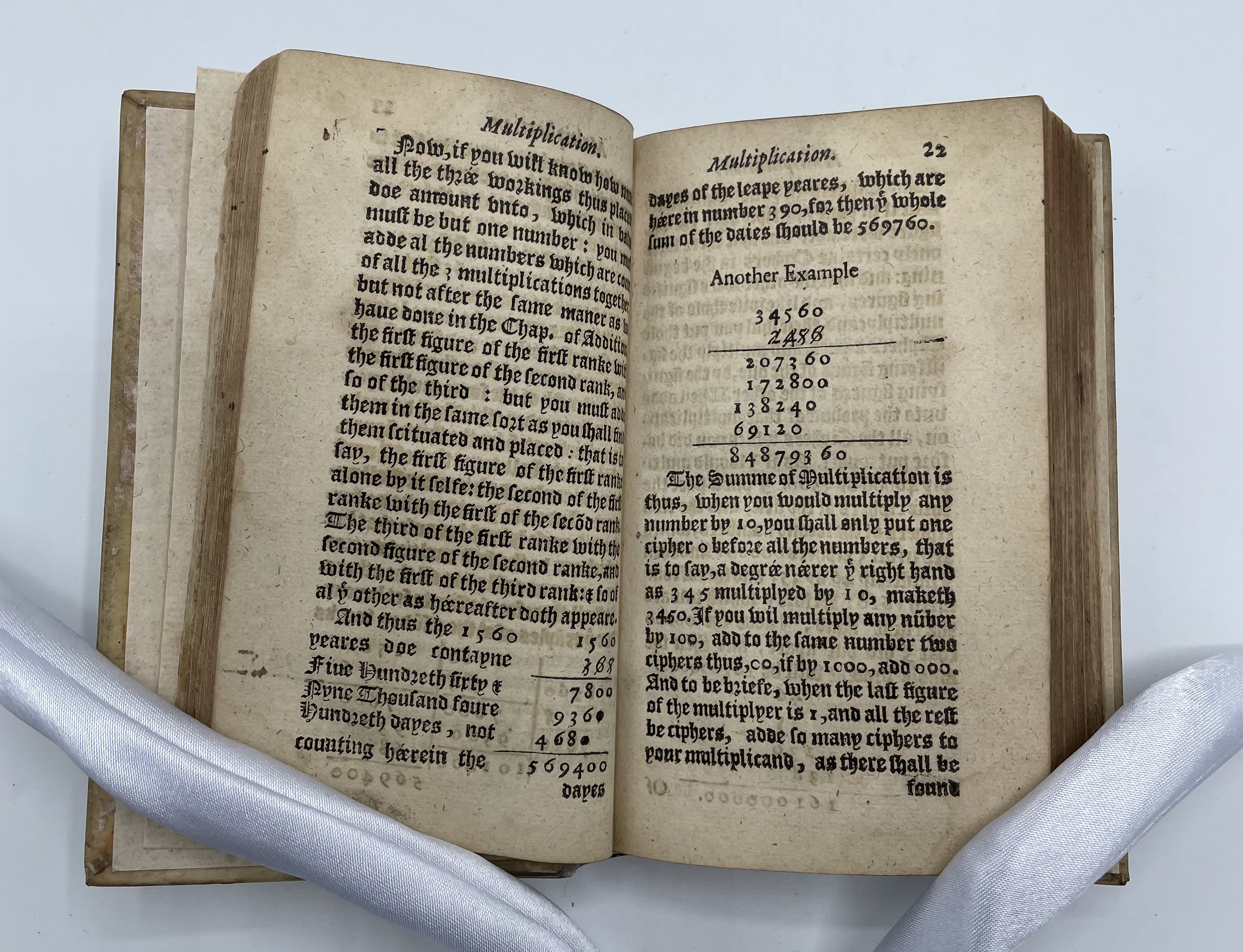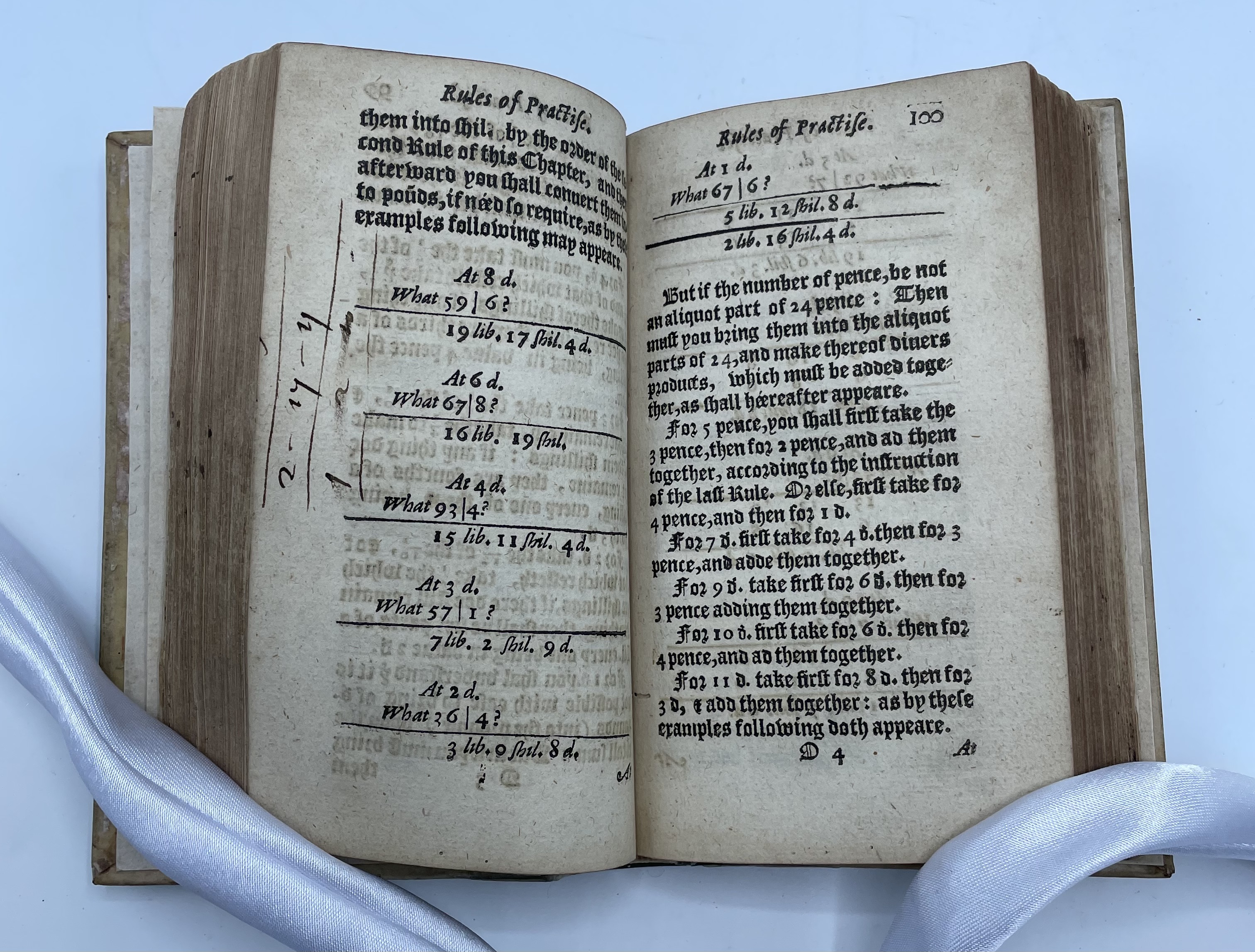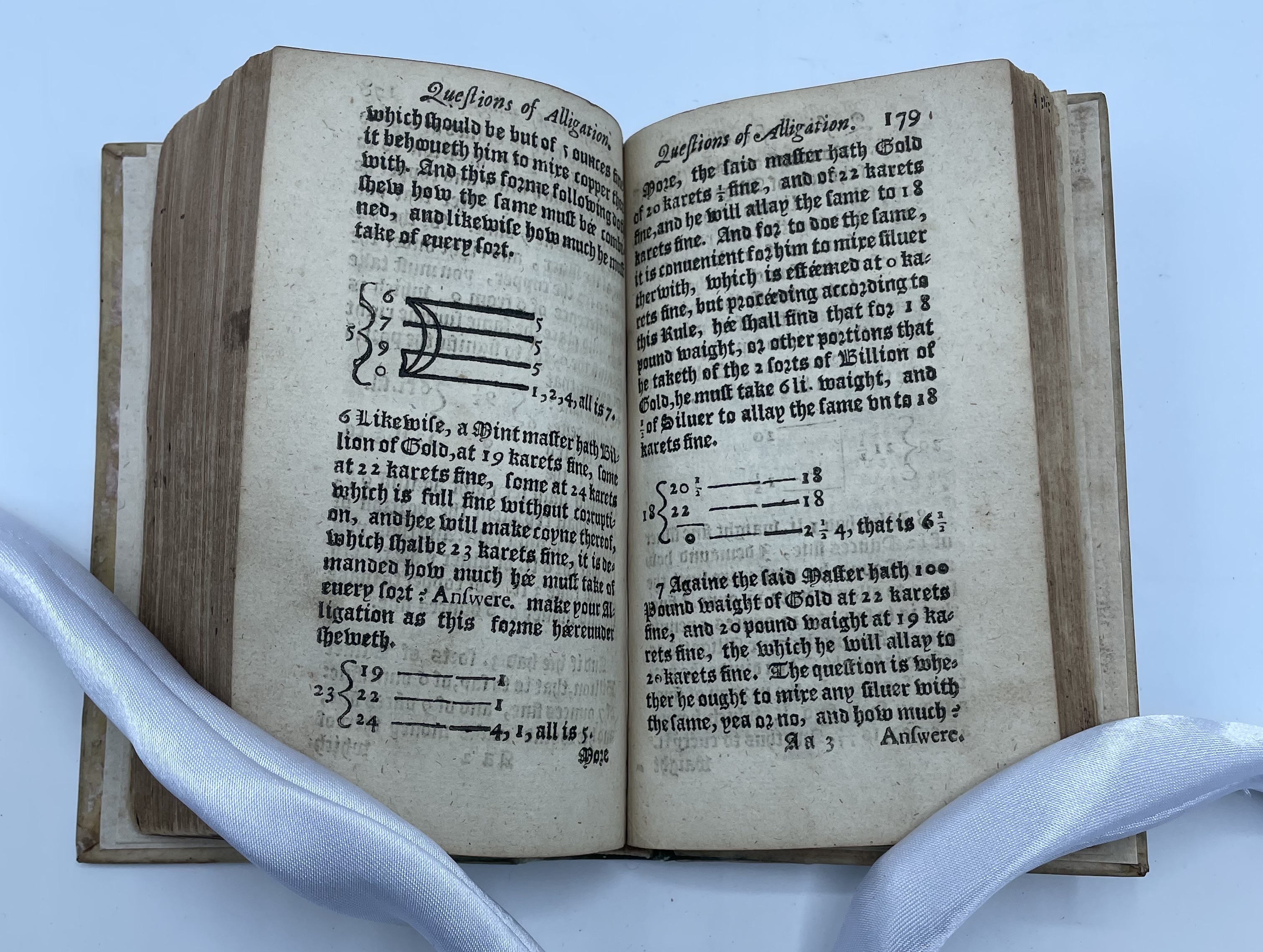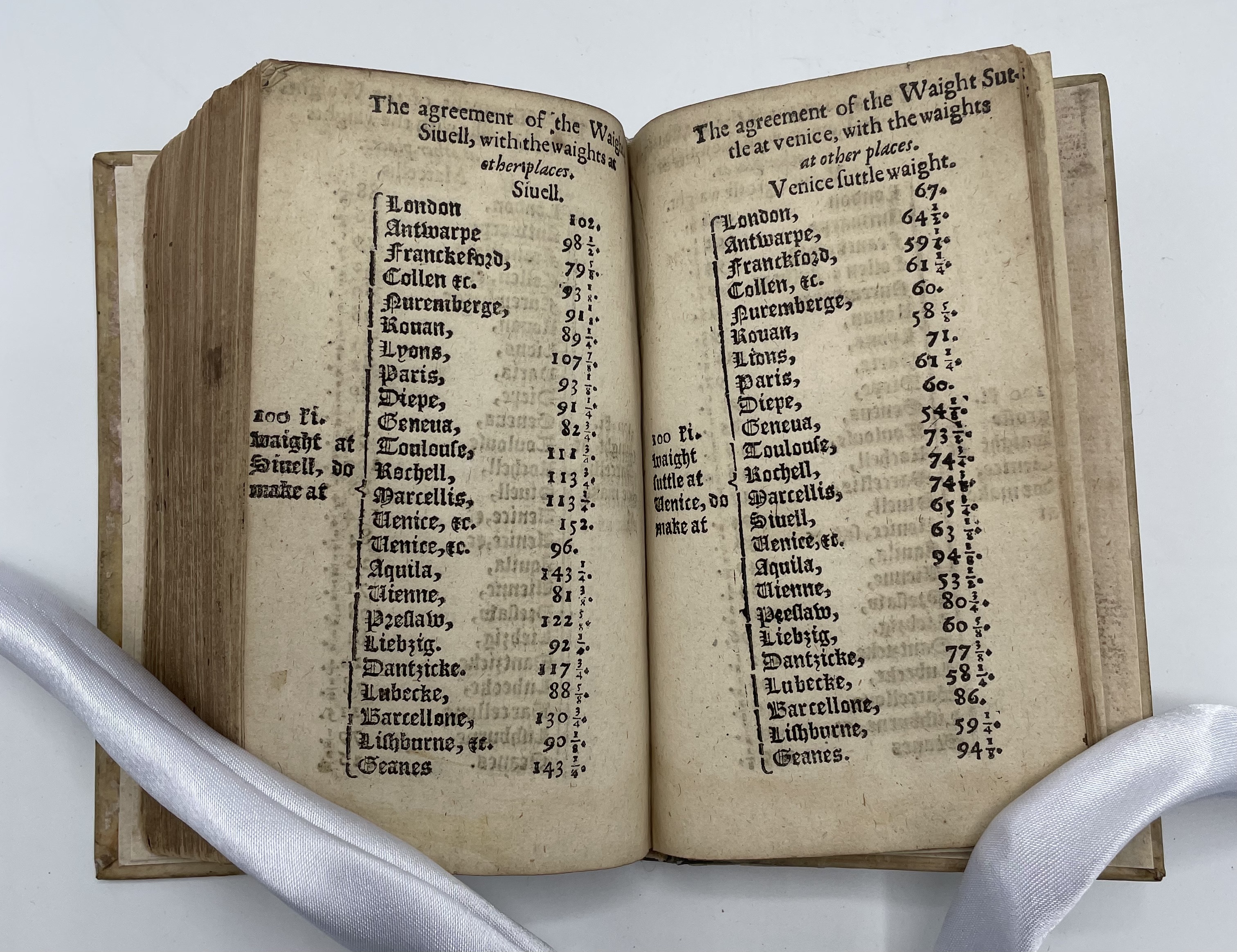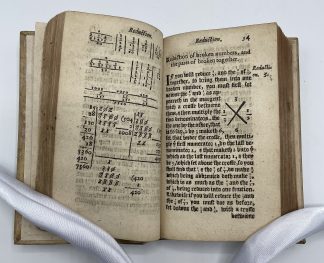BAKER, HUMPHREY.
BEST EARLY ENGLISH ARITHMETIC
The Well springe of Sciences, which teacheth the perfect worke and practise of Arithmeticke, bothe in whole Numbres and Fractions.
London, Printed by Thomas Purfoot, 1617£4,250.00
8vo. ff. [8], 198, [25] (without last blank Ff8). Black letter, some Italic and Roman. Title within typographical border, woodcut initials, typographical head and tail-pieces, numerous mathematical diagrams and tables, “John Rudge” in early hand just before table, ‘Adam Keys’ in C18th hand on A2., “Jeromiah Powell” in early hand in margins of a few leaves, manuscript prayer in contemporary hand on verso of title, occasional manuscript mathematical annotations in margins. Light age yellowing, title page a bit soiled, upper corners a little worn, occasional marginal mark or spot, final table slightly dusty. A generally very good copy in C18th vellum over boards, covers bordered with a gilt rule, spine, rebacked to match, gilt ruled in compartments.
A rare edition of this important and most influential arithmetic by Humphrey Baker, one of the most popular of the sixteenth and seventeenth centuries. “Humphrey Baker was a teacher in sixteenth-century London, the translator of a book on almanacs, and the author of the very successful arithmetic primer, ‘The Welspring of Sciences’, embodying its author’s infectious enthusiasm for its subject (he once compared arithmetic to good wine, which needed no “garlande” to persuade buyers of its merits). First published in 1562 ‘The Welspring’ went into many editions down to 1670: the later versions were simply called ‘Baker’s Artithmetick’.” The author rewrote it in his later years and editions from 1580 onwards are more complete. “The final section of the book gave a selection of mathematical amusements, some of the first pieces of recreational mathematics to be printed in England”. Benjamin Wardhaugh ‘A Wealth of Numbers’. Humphrey Baker was a specialised teacher of mathematics and his method of teaching differed from the traditional approach. “The curriculum of London’s schools and academies was surprisingly wide-ranging and included basic instruction as well as guidance in more specialised subjects. .. In addition to the guild based training of apprentices, London also posted a variety of more specialised academies, including foreign-language schools, mathematics schools and schools that taught the art of navigation. … Humphrey Baker, a well-known mathematical writer, took boarders into his house on the north side of the Royal Exchange to facilitate their immersion in his mathematical curriculum.”
One of the reasons for the success of Baker’s work was that he insisted on the usefulness of mathematics, particularly for merchants. “In the preface to the 1574 edition (reprinted in this edition) of his The Well spring of Sciences, dedicated to the company of Merchant Adventurers, Humphrey Baker was sure he could appeal to a widely held opinion among the London commercial élite with regards to the usefulness of practical arithmetic for business purposes. “And heerein I am sure yee are good witnesses with mee, howe foolishe and vayne is their opinion whiche beside youre most commendable affaires, suppose and affirme that Arithmeticke is of small use unto any other men, seynge that the lawes of sundry Realmes well instituted and guyded have deservedly accompted for fooles, and unfit members (to rule or deale in a Common welthe) all suche as wanted the skill of natural Arithmeticke, deprived them bothe of Landes and livinge, whiche as it tendeth unto no small prayse and credit of Arithmeticke.’” Raffaele Danna ‘A Numerical Revolution: The diffusion of practical mathematics and the growth of pre-modern European economies’. The work’s practical appeal to merchants can be seen in the appended table of exchange rates and measures in Europe. As with most practical school books, they were often heavily read and abused and are rarely found in such good condition. “The only English rival to Recorde’s Ground of Artes … and it was in many respects better than that popular work.” (Smith p. 327)
STC 1217.In stock


